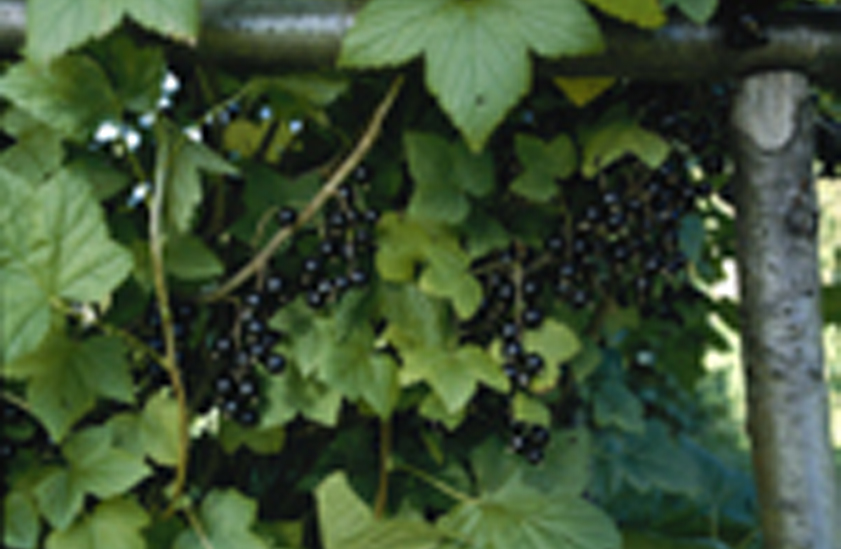When Alzheimer’s disease is diagnosed, the world shrinks to a narrow space with no logical order. It makes round-the-clock care by specialised staff necessary – a cost factor which in view of demographic developments in our society pushes our health system to its limits. Healthy eating can make an important contribution in the long term to prevention. A particularly important role is played by foodstuffs with a neuroprotective effect, such as blackcurrants, for example. The active antioxidants of the fruit are also found in the pressed waste left over from juice production. A cheap raw material for product development – provided an efficient recovery process is found and processing into attractive end products takes place. In the framework of the EU project “Brainhealthfood“, researchers from ttz Bremerhaven are planning to tackle this task in co-operation with eight partners.
Bremerhaven, February 2009. Dementia is currently the most frequent age-related neurodegenerative dysfunction – more than 10 percent of the over 65’s are affected. The diagnosis means the loss of autonomy. 24-hour care becomes imperative and burdens the health system with immense costs. In the USA, the cost of care and medication for patients with Alzheimer’s disease is estimated at over 100 billion dollars. According to a report by the Robert Koch Institute published in 2006, about 700.000 people in Germany are suffering from Alzheimer dementia. In view of demographic developments – in particular the over 65’s are affected – the question of finance is becoming social dynamite. A figure of 2.6 million patients with Alzheimer’s disease in Germany is forecast for the year 20501. That corresponds to a mean rise in the number of patients of 35.000 per year.
Although the effects of dementia have not yet been completely explored, there are many indications that it is caused by severe oxidative stress on the brain. The triggers for this are lipid peroxidation, the formation of free radicals and amyloid beta proteins. Current epidemiological results suggest that a varied diet rich in phenols can reduce the risk of dementia. A regular intake of foodstuffs with a neuroprotective effect can ease the burden on the health system in the mid to long term.
At present, there is no product in the functional food range based on blackcurrants. In order to close this gap in a cost-efficient way, residue from juice manufacture is to be used as raw material. This can be purchased for as little as 300 to 500 Euro per ton – a seventh of the price for alternative sources of raw materials. ttz Bremerhaven will be responsible for identifying methods of how to recover bioactive agents. “Each type of raw material places specific demands on the extraction process. We will start with test series in the spring in order to determine the best process for blackcurrants. Important factors are both the quality of the end product and its shelf-life, but also the time and energy input of the method”, explains Marie Shrestha, Project Manager at ttz Bremerhaven.
Apart from investigating the ingredients, their quality and the impact on health, the project partners are offering support in product development and marketing. This know-how regarding the processing of bioactive ingredients from blackcurrants to food products, food supplements and non-food products will be passed to small and medium-sized enterprises. With the bright growth prospects for the market of these “nutriceuticals” (nutrient + pharmaceutical, a nutrient with a pharmaceutical effect), they can strengthen their position against global competition. The positioning of attractive products will stimulate demand. Berry producers will feel it too. In line with the objective of “Brainhealthfood“, products from Europe will experience a rise in demand and increasingly replace imported goods. This development strengthens rural cultivation regions by opening up new sales opportunities. By using residual material, costs for transport and disposal of waste are saved. The “Brainhealthfood” project has been awarded 870.000 Euro funding over a period of two years by the European Union.
More information about the project Brainhealthfood can be found in the Brainhealthfood project description.
[1] Statistics of the Deutsche Alzheimergesellschaft, information sheet “Self-help for Dementia”, 06/2008
Press pictures for editorial use (foto: ttz/pr)
Picture:
Small berry with big potential: The blackcurrant’s antioxidant effect can counteract Alzheimer’s disease. Researchers at ttz Bremerhaven are developing products with this ingredient.
Download with right mouse button: “Save as…”
ttz Bremerhaven is an innovative provider of research services and operates in the field of application-oriented research and development. Under the umbrella of ttz Bremerhaven, an international team of experts is working in the areas of food, environment, health and consulting.




